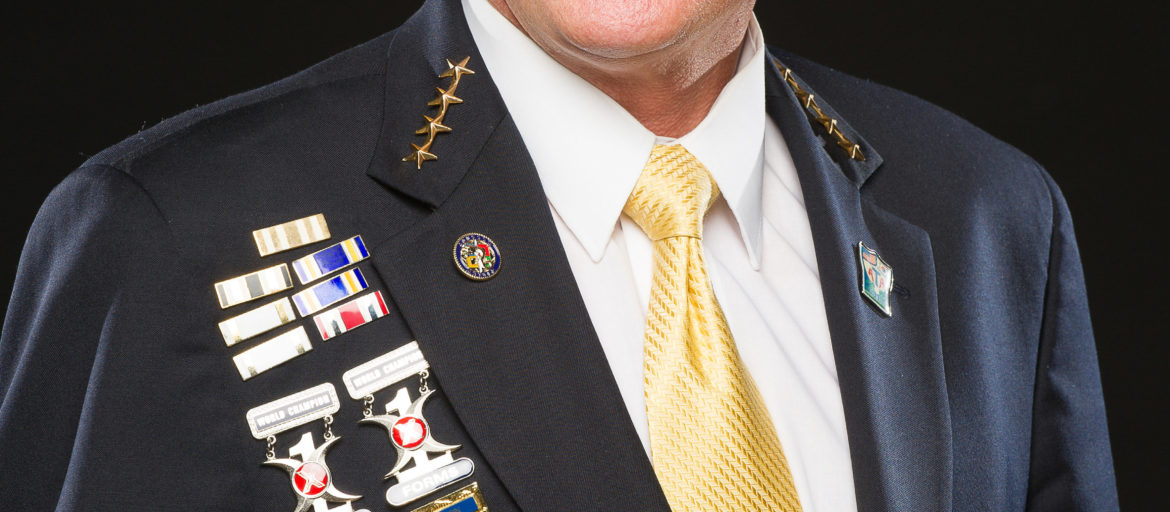i don’t allow students to ask questions: smwjb
Written by Bill Babin Motivational Speaker on August 24, 2009
Asking questions in class: Part 2
it’s simple: “no one needs to ask questions in class!”
Thanks to all the instructors for commenting on this question, especially mr. rex veeder, my original instructor and taekwondo inspiration. thank you, sir, for all you did for me.
at the risk of creating a “i walked to and from school in three feet of snow in my barefeet” story, please consider this.
one of my fondest memories of training is that i instantly learned to focus. as i will mention again, i was one of the lucky ones. i could actually control my movements–no matter how much the sweat burned my eyes or caused the back of my head to itch.
i had two very important teachers, mr rex veeder and eternal grandmaster h.u. lee. they were very different personalities. i was downright scared of eternal grandmaster and all of the other high ranks that came to visit tucson, like mr. robinson, mr. pierce, and mr. hawkins. they taught. i listened. i saw people get 100 pushups for scratching the head or wiggling. actually i never saw EGM lee do that. i only saw the others do it. but because of the chain of command, if i saw a 4th degree (they were gods in in 1978) give pushups for wiggling, i simply assumed that “master lee” was even stricter. but let me repeat: i don’t remember ever seeing EGM lee give physical punishment for something. but i do remember numerous times where he spoke his mind quite specifically. he often corrected students for long hair or being overweight right in front of everyone else. you could say there was a little “pressure” in his classsroom.
this experience reminded me a little of my 8th grade teacher at st aloysius school in new orleans, brother james. every day, i watched him call a kid to the front of the classroom, make him bend over in front of us, then swat him with a stick because he failed the spelling test. i saw him slap kids and i saw kids wet their pants because of fear and stress. well, again, i was a lucky one. i was a verbal learner who understood language and really studied spelling every night. I NEVER GOT HIT FOR FAILING A SPELLING QUIZ. and i never did pushups for scratching my head, AND I NEVER ASKED QUESTIONS, either to my 8th grade spelling teacher or eternal grandmaster.
then i went to taekwondo camp and got yelled at some more. i remember distinctly getting yelled at one year for not yelling correctly?????? !!!!! there was plenty of exercise, but also plenty of “exercise as punishment” and plenty of “mind games” that caused stress. our sleep cycle was disrupted daily to add to the discomfort. but i never got punished. i never caused my squad to get punished. and i did learn to focus.
then there was mr veeder. in some ways, he was a much more casual teacher than h.u.lee. he smiled a lot. made lots of jokes, laughed. but wow, could he kick!!! that was all i needed. i just stood still, never moved, never asked a question. yes, i was intimidated by his physical presence. but more than that, i was motivated to kick like him. i wanted that more than anything else. and i did not need to ask questions to get it. all i had to do was watch him, focus, listen to him, and try really hard.
i must be perfectly clear: i am not comparing EGM LEE to my cruel 8th grade teacher. i do not believe that brother james did anything positive for his students. i believe he was cruel and sadistic and that his behavior might even be criminal by today’s standards. i only want you to know about him because he is part of my memory of teachers. and we all need to know how fear–as negative as it is– can be used as a motivator. brother james is a negative example of leadership. and you will find many others in the world around you if you just look.
now back to EGM LEE and my other early taekwondo instructors. . . .
i do not recall asking questions during any of my early training. i DO recall classes being “tense” in a positive way. i was focused, and yes there was a little “fear” motivating me. i did not want to do pushups or cause my classmates to do pushups. but there is a big difference between that kind of “positive tension” and the genuine fear i felt in brother james’ class. you must acknowledge the POSITIVE VALUE of this unique stress that i am describing; positive stress is called “eustress” and when students feel it, they get focused!!! and that’s effective teaching.
another important factor is that EGM LEE, mr veeder, mr hawkins, and all the other high ranks i first worked with also made themselves available before and after class, and very often at meals we shared together. eating together with EGM LEE was very special. at these times, he would smile and even joke and you could actually talk to him, even if it was just to say something stupid, like, “i love taekwondo, sir!” in this way, and with one million other acts of kindness did EGM LEE build rapport. he was a living example of love and yet he was committed to pushing you in the direction he thought would make you better. he never compromised on that–even when you resisted. and isn’t that a great example of love!!!
so mr. veeder shared the joy he felt when doing taekwondo and EGM lee was more of a father figure AND taekwondo teacher. i clearly was fortunate to be taught by the best!
let’s get back to the issue of asking questions in class.
i don’t allow any students to ask questions in any class. raising the hand means ONE thing: “i need to leave the class because i have to go to the bathroom or i am injured.” that’s it.
this lesson is especially important for younger, inexperienced instructors who think they are building self-esteem by “listening to what students have to say.” rubbish!!! you can listen to students before and after class. WHILE IN CLASS, students need to do only TWO things
1. LISTEN / FOCUS
2. PHYSICALLY TRY THE MOVEMENTS
there are two ends to this spectrum of instruction. on the ONE END you have the instructor who keeps his class moving. when you watch him teach, the students are either engaged in practice OR they are kneeling to listen to what the next exercise will be. when you watch THE OTHER instructor teach, the pace of the class is constantly interrupted by student questions:
“do we switch legs?” “can i get a drink?” “i don’t understand.”
“is that a front stance?” “do we keep going?” “he’s not doing it right.”
and the best of all. .. . . “i can’t do that!”
if you are teaching correctly, at least 50% of the time, NO ONE in your class “can do it” because you are always asking them to do new things. so it is an irrelevant question.
you need to create the type of atmosphere in which the students know that their responsibility is to TRY THEIR BEST no matter what the challenge. that’s it!!! (REMEMBER Randy Pausch’s comments about building self-esteem.)
taekwondo class is not a dialogue!
mrs. babin, my wife, business partner, and co-instructor, always tells the kids: “Just try. if you make it a mistake, make it a good one.” all she is doing is very directly forcing the students to develop self-reliance instead of using the “knee jerk” reaction, “i can’t do it. i need help.”
another point that i must make is that our taekwondo classroom is NOT LIKE AN ACADEMIC CLASSROOM. especially in elementary grades, teachers have their students for about five hours per day. their subject matter and the time spent with students jusitifies a different style that includes dialogue between student and teacher. but even these students need to be pushed to become self reliant.
lots of you had very good comments on this question. Master Feiles, for example, pointed out that teens and adults “thrive on knowing WHY and HOW much more than kids do. ” that’s true and i think you can build rapport with adults by giving some of the WHY and HOW information. but questions and explanations can interfere with the PACE of ANY class, kids or adults. i like doug sullivan’s comment: “If there is a question I’ll answer it thoroughly, yet as quickly as possible. I don’t want to get bogged down answering a ton of questions.” that tells me mr. sullivan is on track to teaching focus and discipline. learn to make your explanations and demonstrations so good that there are no questions. learn to move the class forward at a pace which is DEMANDING, PHYSICALLY AND MENTALLY. learn simply to DO MORE and TALK LESS.
some of you commented about children being fragile. i respect that comment, but as taekwondo instructors we need to stay focused on what we are teaching — DISCIPLINE and FOCUS. create the right atmosphere of LOVE and FIRMNESS that children naturally respond to. use the rapport-building skills from your instructor manual to let the students know how much you care about them. but that does not mean you have to allow a question / answer dialogue in your very brief class. (again, study THE LAST LECTURE for more tips on building self esteem.)
and learn to implement this simple rule for great instructors:
Do more; Talk less!
i’m even considering watching my instructors teach and using a stop watch so i can give them a factual report on how much time the students actually spent practicing as opposed to listening.
as always, i ask you to live the vision of EGM LEE. be an example of discipline, focus, strength, health, joy, and love.
senior master wj babin





Master Young On August 25, 2009 at 4:24 am
Sir –
I knew where you were going when you asked the question. I have known your rule about asking questions for quite some time. It’s also why I answered the way I did 🙂
Chris Whamond On August 25, 2009 at 5:47 pm
Students can always schedule a private class if they have lots of questions.
Doug Sullivan On September 1, 2009 at 4:43 am
Let me start by saying, Thank You, for a very thought provoking discussion. I’ve been thinking about this since you posted “Part 1” and keeping track of questions in classes I teach.
In the weeks since, I have taught six times. Aside from the “May I get a drink” or “May I use the restroom” questions–which for all intents and purposes don’t count in this discussion, I was asked one question. One question in six classes.
That question arose because I did not make myself clear enough in the directions I gave for the drill I had the students do.
In that aspect, I failed in setting a direct goal. I realized that the drill was unnecessarily complicated and needed to be simplified.
I like the “Do more; talk less” idea. I’ve also been trying to do my talking while my students are engaged in an activity. An activity that isn’t so strenuous they can’t still pay attention to me, mind you, but an activity none the less. The goal of “Zero down time” is important to me. I believe our goal is to make it as clear and simple as possible. Getting right to the point so the students can dive in.
Again, thank you for opening the discussion!
Brian Taubert On January 21, 2011 at 2:46 pm
This is great information. Thank you so much for sharing sir. I do not allow questions during my classes. I started doing this about 6 months ago and we get much more done in my classes. Now, my students must actively listen to my instructions AND I have to be clear, because it’s only going to be said once!